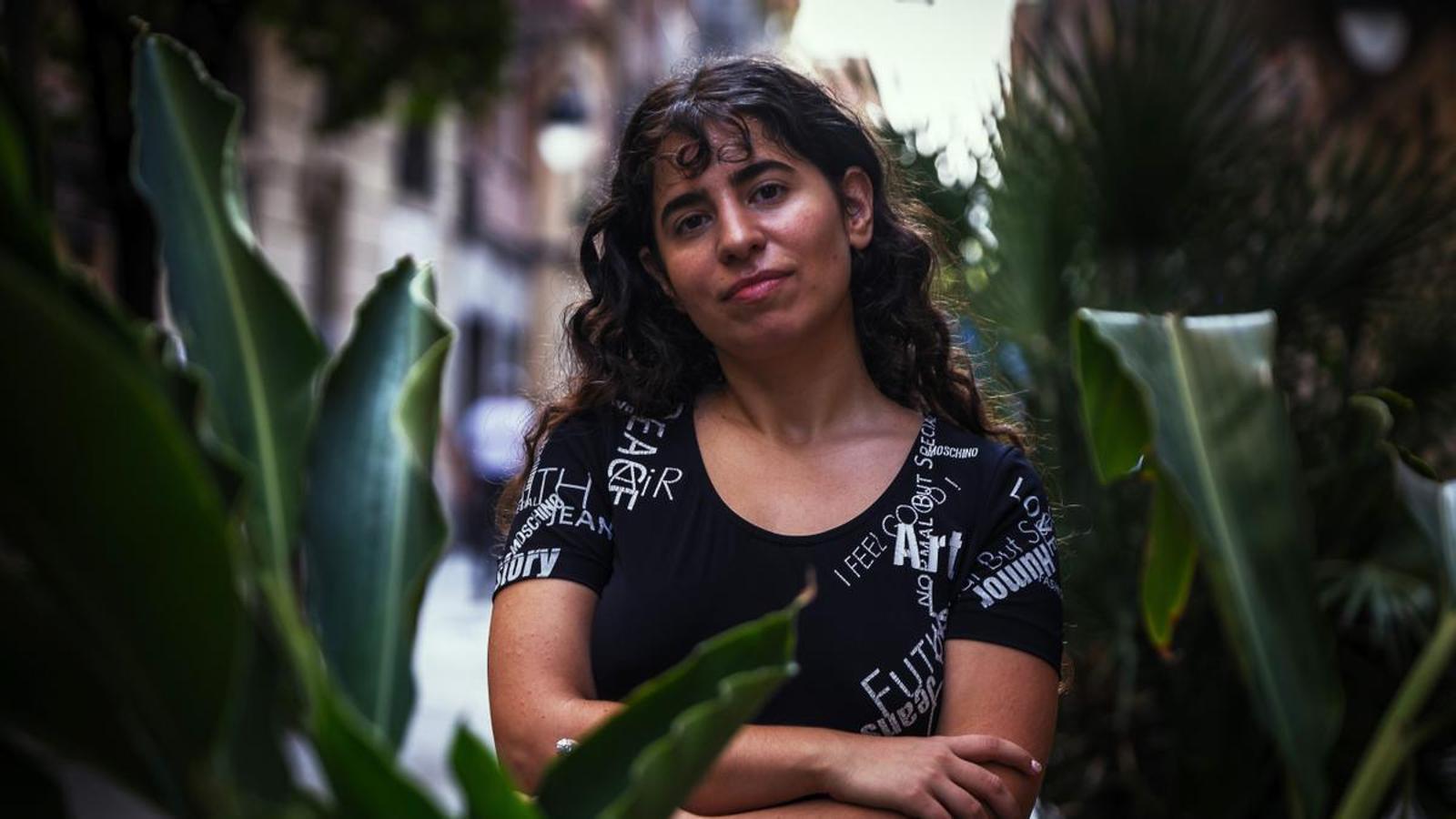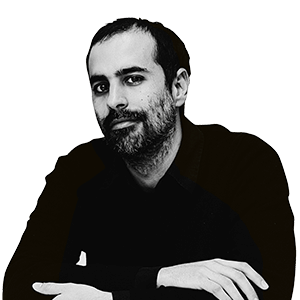Irene Moray: “I wanted to try to understand what happens to some of the men, friends, or lovers I’ve had.”


BarcelonaWith his previous short, Suc de síndria (2019), Irene Moray (Barcelona, 1992) won both the Goya and the Gaudí and was nominated for the European Film Awards, more than enough to mark her as a great promise of Catalan cinema. Six years later, and while working on her first feature film, Moray premieres a new short film at the Locarno Film Festival, Plankton, which tells the story of the reunion of two university friends in Cap de Creus. Repressed emotions, the liberating energy of sex, and the sensual dimension of nature are still present in Moray's films, which this time add a magical and poetic element to his images.
A Suc de síndria You addressed the sexual block of a girl who finally managed to break it with the help of her boyfriend. In Plankton, On the other hand, a boy is emotionally blocked, and the person who helps him unblock is a girl. Did you want to play with the point of view?
— In Watermelon juice I was left wanting to explore the male character further. Although the focus was on the protagonist, he also didn't dare to delve deeply into his own sexuality. And I wanted to try to better understand what happens to the men, friends or lovers I've had, who are like... stiff, I don't know how to put it. And I don't know if I've found the answer, but I wanted to explore that great fear of undoing the shell. It's the big difference with Suc de síndria: then I wanted to say something to the world, while in Plankton I felt the need to look at and understand that abyss that calls my attention.
Male sexuality is not a topic that is usually explored much in cinema.
— I have the feeling, and not just in the realm of sexuality, that there's a certain constriction among some men who, in the wake of the rise of feminism, want to do things right, but don't know how. Feminism points out all the things we're doing wrong, both men and women, but there's still no positive guidance. But it's more a feeling I have about the men around me; besides, the short doesn't talk about sexuality.
In fact, the protagonist's blockage of Plankton It is rather emotional and creative.
— Yes, exactly. It's more a fear of being vulnerable in front of another person, the fear of loving and being loved, which goes beyond gender. I think I decided to make it a man so I could explore the theme from that perspective, but ultimately it's about someone who's as afraid of causing harm as of being harmed. The fear of confronting the body and the entity of another person, which can be a source of pleasure but also of pain.
Although it is not the subject of this short, I would say that you and Elena Martín [protagonist of Suc de síndria and director of Creature] you are the exception in a Catalan cinema that does not seem very interested in sexuality as a dramatic territory.
— I don't know, I talk about sexuality or sensuality and bodies because they are subjects that interest me. Even when I was a photographer, I had an obsession with bodies and I really liked photographing naked people, but not for any sexual reason. I also really like the relationship between bodies and nature, which is a space where I feel comfortable and have the confidence to transform and get to know myself. With my films, it's as if I look for excuses to be in these situations. During the filming of PlanktonFor example, I took a moment to myself and went for a naked swim in the sea; then, still wet with a towel, I continued conducting. To me, that's paradise.
Is that why you filmed the short film in Cap de Creus?
— In the short, the landscape serves the same purpose as the protagonist's body: a rugged wilderness, an abyss between the rocks that frightens him. For me, the body is also a part of nature. I didn't know much about Cap de Creus, but I recently went there and some rather magical things happened to me: I met animals, I saw plankton for the first time... and all of this inspired me.
Is it a statement of intent that the protagonists of such a sensual story are a racialized actor (Malcolm McCarthy) and an actress with a non-normative physique (Clara Sans)?
— I chose Clara really for a question of energy, because she has a very earthy quality and a lot of strength, and I think also for an aesthetic reason, because she has a very beautiful body and I liked that she was older than the boy's, because that way he could feel smaller. Clara is so attractive and magnetic that I knew the shots would turn out well with her, and they did. The director of photography and I talked about it, she's always beautiful: you can see her double chin and it doesn't matter, she's beautiful. And she's a very good actress.
Neither the fact that one is racialized or that the other has a certain physique has any weight when it comes to defining the characters.
— I just thought that having different bodies added up. In fact, they're not that different either. In reality, for me, they're both very normative: they're objectively very handsome, almost Hollywood-esque. And I was clear that I wanted Malcolm's character to be a Catalan and Black boy. I wanted to change a little what we think a Catalan boy is. Racism worries me, and one way to fight it is precisely to give Malcolm a role that doesn't necessarily have to be for a Black person. It's like, where does it say that a Catalan boy can't be Black?
Both in Suc de síndria as in Plankton There were sex scenes, but only now have you worked with intimacy coordination. Has the experience been very different?
— In Suc de síndria We had the advantage that the two actors were a couple, and I always take great care of the actors: I acted as a bit of an intimacy coordinator for them without actually being one, and we took measures to make sure they were comfortable. But now that this figure exists, it seemed important to me that she was there, especially because the sex scene is long and has a somewhat bittersweet ending. In fact, the actors told me it wasn't necessary; they were already fine, that they felt very comfortable. But when the session was over, they were very grateful for having an intimacy coordinator.
You are not an actress, but last year you acted in a play, From fandom to trolling, by Berta PrietoHow was the experience?
— A very fun professional intrusion. It was a challenge because I was very nervous, not so much about acting, since I'd already done some audiovisual work, but about doing it in theater. And Berta works in a very specific tone. For example, she'd ask me, "Are you feeling things right now?" And if I said yes, she'd say, "Oh, no. I don't want feelings."
How did you end up on the project?
— Berta was looking for an actress who was also a director and suggested it to me. I think she had also suggested it to Elena [Martín], who is obviously more of an actress than I am, but she couldn't do it. So we held a casting call and I had a great time. I wanted to try it. I think it's very healthy to put my whole body into a project without having all the mental responsibility. And I was scared before the premiere; I struggled to find the tone and didn't want to mess up, but it was a lot of fun.
Your character incorporated many personal elements in a satirical tone. You poked fun at yourself and the film industry a bit, but frustration was palpable behind the laughter. Do you also feel that way about the film world?
— Reflecting that frustration was what Berta wanted, but it's true that there are scenes that were born from an improvisation I did with Judit Martín and that came from my experience with this short and the obstacles they put in my way to make the first film. It's also true that I made a risky decision for my first film, which will be in a genre I've never touched, fantasy, and with a higher budget than usual for a first film. If I had wanted to make a sequel to Suc de síndria I would have already shot it on film, but I'm true to what I want to do. And when you're true to yourself and aren't constantly thinking about how to take advantage of the things in this industry, everything goes more slowly. But we've already raised part of the budget, and if all goes well, we'll shoot it at the end of next year.
